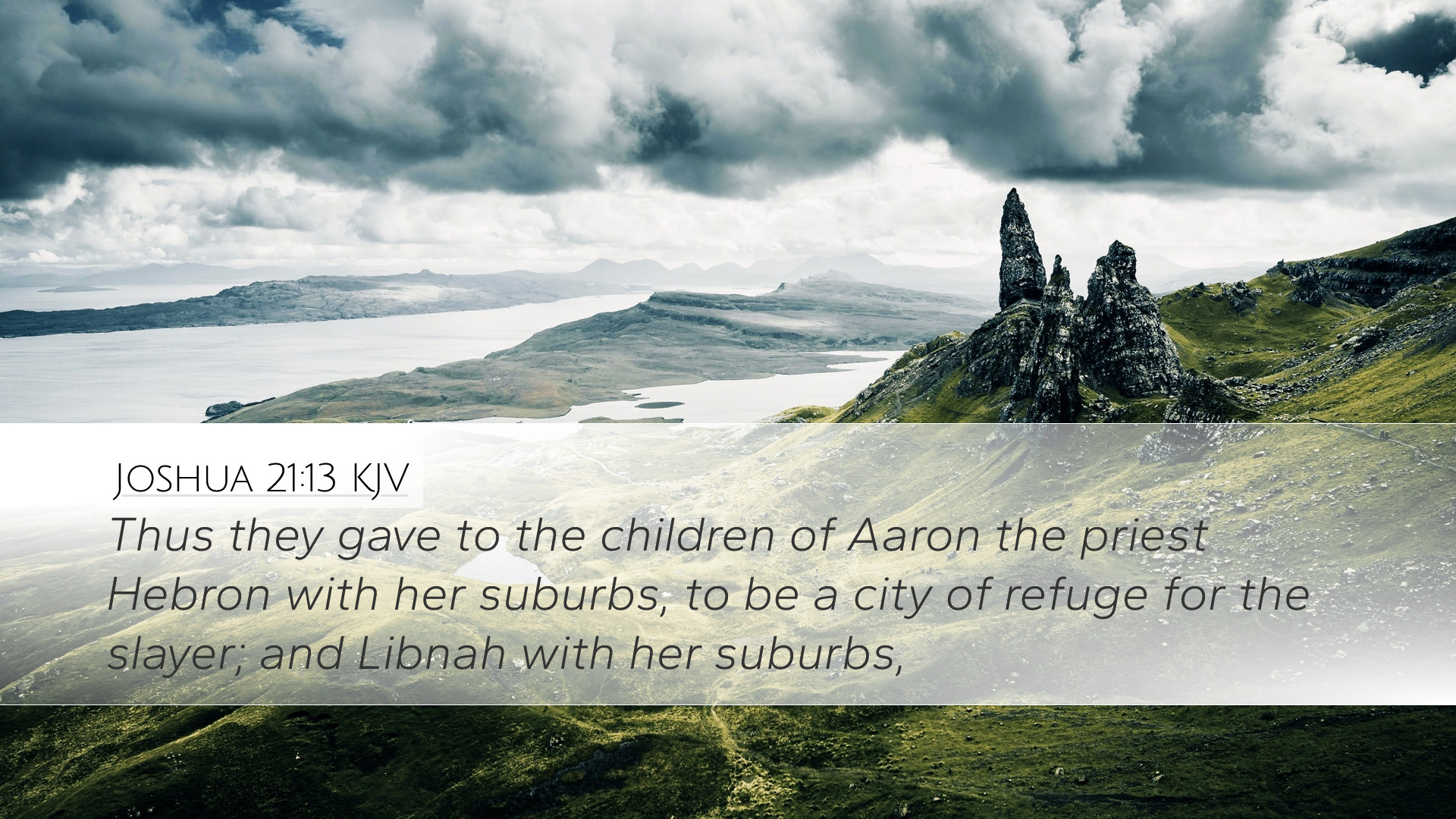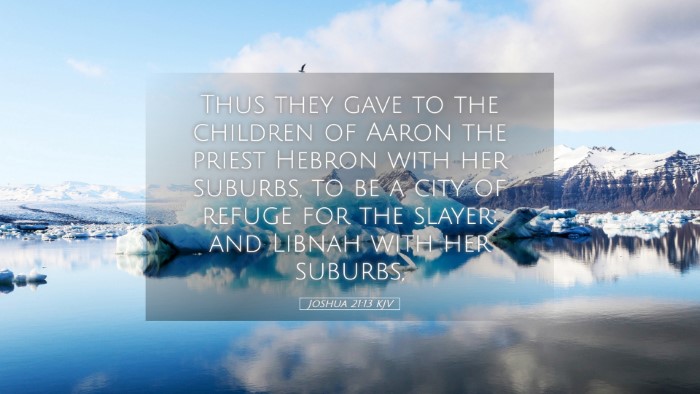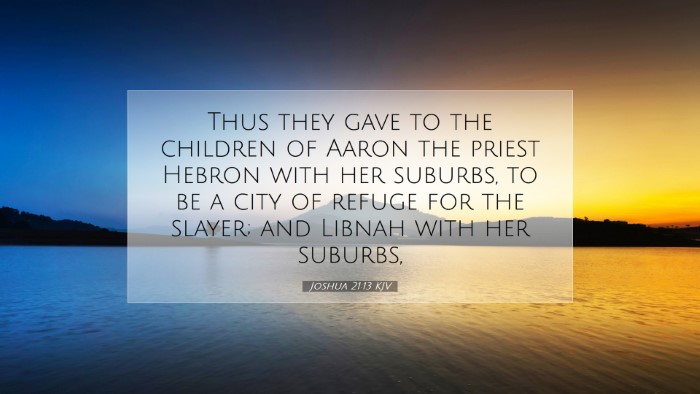Commentary on Joshua 21:13
Verse Context: Joshua 21:13 states, "Thus they gave to the children of Aaron the priest, Hebron with her suburbs, to be a city of refuge for the slayer, and Libnah with her suburbs." This verse encapsulates the significant provision made for the Levitical priests and reflects the theological implications of refuge and holiness within the narrative of Israel's settlement in Canaan.
Interpretative Themes
This verse serves several primary functions within the text:
- Significance of Cities of Refuge: The establishment of cities of refuge is crucial, as these places represented God's mercy and justice. They were critical for those who accidentally caused death, allowing for protection from avengers while also upholding a measure of justice.
- Role of the Priestly Tribe: The mention of the children of Aaron highlights the importance of priesthood in Israelite society. It shows how integral the priests were in mediating between God and the people, illustrating their role in the covenantal community.
- Geographical Divine Allocation: The allotment of specific cities like Hebron and Libnah showcases God's intentionality in providing for His people, ensuring their spiritual and practical needs are met.
Commentary Insights
Matthew Henry's Perspective
Matthew Henry emphasizes the grace inherent in God's provision of cities of refuge. He observes that the selection of these cities reflects God's desire to protect the innocent and maintain societal order. In his commentary, Henry points out that while justice must be served, God's mercy provides an avenue for those who have made unintentional mistakes. He writes that these cities demonstrate a balance between justice and mercy, indicating that God is both righteous and compassionate.
Albert Barnes' Remarks
Albert Barnes provides a detailed analysis of the geographical implications and the allocation of cities to the Levites. He highlights that Hebron was not only significant as a city of refuge but also carried historical importance, being the burial site of the patriarchs and a place closely associated with David's reign. Barnes notes that the Levites' cities served dual purposes: they were both places of refuge and areas where worship and priestly duties could be carried out. This deeper understanding underscores the Levites' unique role in preserving holiness within Israel.
Adam Clarke's Analysis
Adam Clarke delves into the implications of the phrase "with her suburbs." He elaborates on how the suburbs served to extend the reach of the cities, providing safety and a space where the afflicted could dwell. Clarke suggests that these suburbs not only represented physical space but also the expansive nature of God's grace, which reaches out to those in need regardless of their circumstances. He also connects this to Christ, who serves as a greater refuge, embodying the ultimate safety from sin and judgment.
Theological Implications
The theological themes present in Joshua 21:13 contribute to a broader understanding of God's nature:
- Divine Justice and Merciful Refuge: The city of refuge concept illustrates how God administers justice with an ever-present mercy. This duality becomes a focal point in New Testament theology, where Christ fulfills the ultimate role of refuge for believers.
- Preservation of Holiness: The Levites' role in this narrative signifies the importance of maintaining holiness in worship and community life. Their cities served as both physical and spiritual markers of God's presence among His people.
- Community Responsibility: The establishment of these cities underlines the communal aspect of biblical faith. It reflects a society where the wellbeing of every member is a shared responsibility, reminding contemporary readers of the need for communal support and mercy.
Practical Applications
The insights drawn from Joshua 21:13 can be particularly impactful for various audiences:
- For Pastors: The themes of mercy, justice, and community can enrich sermon preparation, especially in discussing God's nature and the responsibilities of the church in fostering a refuge for those in need.
- For Theological Students: The historical and contextual analysis of cities of refuge provides critical insights into Israelite law and its implications for understanding biblical justice.
- For Scholars: The interplay of geography, priesthood, and theology in this passage invites a multi-disciplinary approach to biblical studies, encouraging in-depth exploration of how these elements converge in the narrative.
Conclusion
Joshua 21:13, while brief, contains profound truths about God's character, the importance of refuge, and the role of those called to serve Him. It invites readers into a deeper exploration of the balance between justice and mercy, encourages an appreciation for community responsibility, and ultimately points toward the ultimate refuge found in Christ. Reflecting on these insights encourages a richer understanding of Scripture and its application in our lives today.


